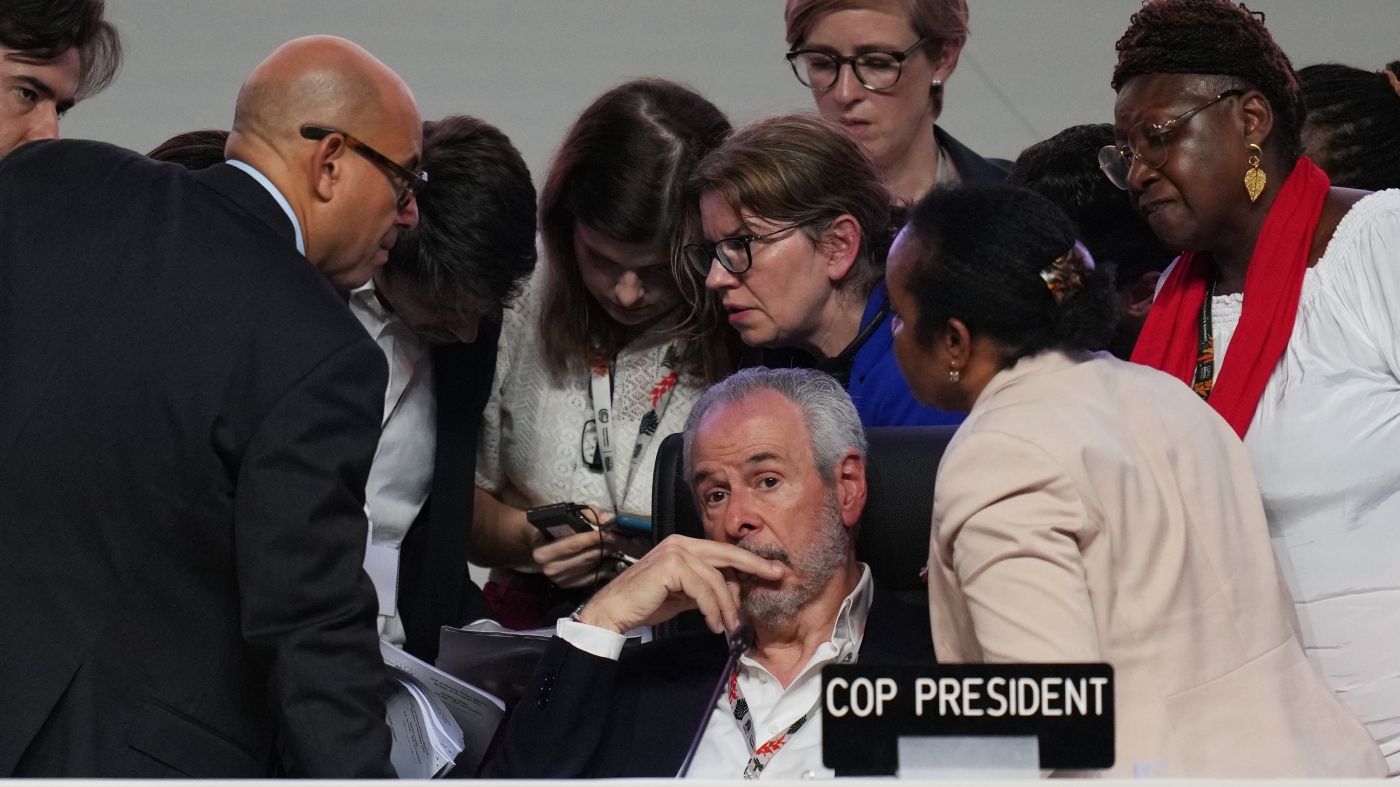UN Climate Talks in Brazil Conclude Without Key Fossil Fuel Agreement
The United Nations' COP30 global climate conference, held recently in Belém, Brazil, concluded without a formal agreement to phase out fossil fuels, the primary driver of global warming. The summit, notably missing a U.S. delegation, made only modest strides in international efforts to curb rising temperatures and secure funding for climate adaptation.
Earlier in the conference, over 80 nations, including developing countries severely impacted by climate change, along with the UK, Germany, and even oil producers like Mexico and Brazil, had pressed for a clear "roadmap" to transition the global economy away from oil, coal, and natural gas. They urged leaders to devise concrete plans to fulfill the landmark 2023 commitment to reduce fossil fuel use. However, major producers such as Russia and Saudi Arabia, alongside nations like Nigeria concerned about economic stability, resisted the establishment of a specific timetable or process for this transition. Ultimately, the final agreement made no explicit mention of fossil fuels.
André Aranha Corrêa do Lago, Brazil's president of the summit, acknowledged the widespread desire for a more ambitious outcome. Despite this, a new initiative saw two dozen countries commit to working with the U.N. on a dedicated process for transitioning away from fossil fuels, with Colombia and the Netherlands slated to co-host the first international conference on the issue in April. Ralph Regenvanu, Climate Change Minister of Vanuatu, an island nation highly vulnerable to rising sea levels, hailed this new conference as a significant accomplishment.
The Stalled Fossil Fuel Transition
Despite the scientific consensus on fossil fuels being the biggest contributor to global warming, climate negotiators have consistently struggled to agree on concrete steps for a global phase-out. While countries two years ago in Dubai first called for a transition away from these resources, COP30 failed to translate this call into actionable plans. The final agreement vaguely stressed the "need for urgent action" to achieve "deep, rapid and sustained" cuts in greenhouse gas emissions, omitting any direct reference to fossil fuels, leaving many nations, including Colombia, disappointed.
The challenge of transitioning from fossil fuels is immense, given the global economy's reliance on them, even as renewable energy capacity rapidly expands. Concerns about economic contraction and social instability in developing nations, like Nigeria, highlight the complexities of imposing a uniform transition timeline.
Critical Temperature Target Slipping Away
COP30 took place as the critical 1.5 degrees Celsius global warming limit, set by the 2015 Paris Agreement, increasingly appears out of reach. Scientists warn that risks to both human societies and ecosystems escalate significantly with every fraction of a degree beyond this threshold. A recent U.N. report forecasts that the planet will likely surpass 1.5°C of warming within the next decade.
While it is still possible to limit this overshoot, achieving a 50% reduction in overall greenhouse gas emissions by 2035 is crucial for the planet to return to lower warming levels. However, current policies project only a 12% reduction by 2035, a mere fifth of what's needed to avert catastrophic warming, according to the Intergovernmental Panel on Climate Change.
Limited Progress on Climate Funding
As the world grapples with escalating climate change impacts, the urgency of funding for adaptation and disaster relief, particularly for poorer nations, has grown. Last year, wealthy nations pledged to provide developing countries with at least $300 billion annually by 2035 and aimed for $1.3 trillion in overall climate financing annually within a decade.
However, wealthy countries have a track record of failing to meet prior financial commitments, and existing funds for climate-related damages remain largely empty. The devastating impact of recent events, such as Hurricane Melissa causing $10 billion in damage to Jamaica (nearly a third of its GDP), underscores the dire need. COP30 offered little clarity on how additional funding would be provided, merely calling for efforts to triple adaptation financing and "urgently advance actions" for broader climate financing.
China's Rising Influence and New Initiatives
With the U.S. absent, China's role garnered significant attention. As the world's largest current emitter and a dominant force in green technology manufacturing (solar panels, EVs, batteries), China utilized the conference to champion free trade in these products, seeking global markets.
A notable outcome was the announcement of a new international conference dedicated to the global phase-out of fossil fuels, to be hosted by Colombia (a fossil fuel producer) and the Netherlands (birthplace of Shell) in Santa Marta, Colombia. This initiative, seen as complementary to the U.N. process, reflects a growing frustration among countries and NGOs with the slow pace of action within the existing framework.

